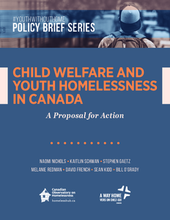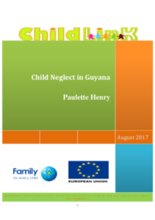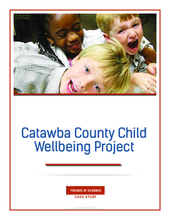This page contains documents and other resources related to children's care in the Americas. Browse resources by region, country, or category.
Displaying 1061 - 1070 of 1438
A recent Canadian study on youth homelessness revealed that youth experiencing homelessness are 193 times more likely to report interactions with the child welfare system. This policy brief offers a snapshot of the situation for homeless youth with experience in care, an analysis of the structures and systems leaving these children behind, and recommendations for policy and practice.
This chapter in Child Maltreatment in Residential Care provides a brief history of congregate care in the United States and the experiences of maltreatment of children and youth within congregate care settings as they shifted over time.
This chapter from Child Maltreatment in Residential Care provides an overview of institutional care in Latin America and the Carribean, describes current efforts toward deinsitutionalization and child care reform in the region, and discusses practical suggestions for further research and reform.
Child Trends reviewed the literature on parenting knowledge among first-time parents with young children (2 years and younger). Specifically, they examined research on what parents know and want to know about parenting and child development, where they get their information, and what sources of information they trust.
This study, commissioned by ChildLinK, critically examines the factors of child neglect by caregivers in Guyana and offers recommendations for key stakeholders across various disciplines.
This report is a case study of the Child Wellbeing Project, which sought to address the reduction of services to families post-care compared to available in-care services to prevent foster care re-entry, ensure permanence, and improve long-term outcomes for children.
This study investigated and compared electroencephalogram (EEG) functioning between a group of institutionalized adolescents and a never institutionalized group of adolescents during a social decision making task.
This study investigated how adoptive and prospective adoptive parents in Spain deal with signs of fraud and corruption within the intercountry adoption process, illuminating the dismissal of the systemic failures of intercountry adoption and the rights of birth families.
This paper offers recommendations for child welfare professionals, caregivers and systems to use the research on adolescent brain development to work effectively with youth in or emerging from foster care.
This study investigated the connection between past child protective services involvement and type of exit from care for youth in probation-supervised foster care.







